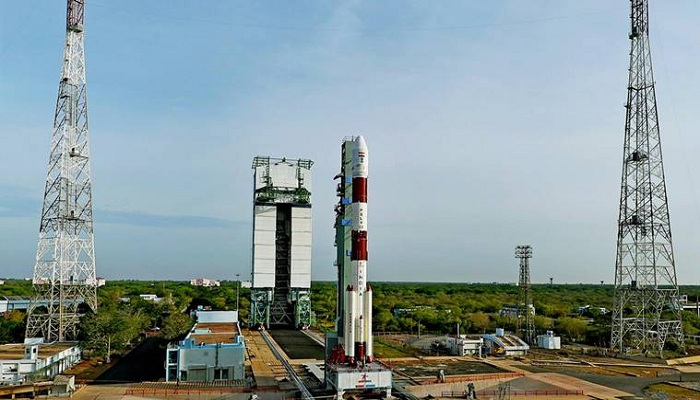
ISRO is gearing up to launch a remote sensing satellite of Cartosat-2 series along with 30 nano satellites of foreign countries in the second half of December.
Vikram Sarabhai Space Centre (VSSC) director Dr K Sivan said, “Isro will be busy in launching a series of satellites from December onwards. We are targeting to launch Cartosat along with 30 nano satellites of foreign countries in the second half of December.”
He said, “The replacement satellite for IRNSS-1A (the first navigation satellite whose three atomic clocks, meant to provide precise locational data, had stopped working last year) will be launched soon thereafter. Both these launches will be from the first launchpad at Sriharikota as the second launchpad will be busy in launching three GSLV rockets, including the Chandrayaan-2 mission in March. “If for any reason, Cartosat launch is delayed in December, it will also stall the launch of replacement satellite IRNSS-1I as both these launches have been planned from the first launchpad.”
The three GSLV launches, which will involve two GSLV Mk II and one GSLV Mk III (Isro’s fat boy), will be from the second launchpad at Sriharikota. Instead of PSLV (which was used for launching Chandrayaan-1 mission in 2008), Isro is using GSLV Mk II for the second lunar mission as the payload is heavier this time (combined launch mass 3,250 kg). The payload will constitute orbiter, lander and rover.
Dr Sivan said, “After the IRNSS-1H satellite failure, corrective measures will be taken in all rockets before the launches.” Though the inquiry into reasons for the heat shield glitch is still going on, “initial findings suggested a defect in the pyro elements of the rocket which deal with the stage separation mechanism”. The VSSC director said the committee probing the failure of IRNSS-1H launch will submit its investigation report much before the upcoming launches.
He said the faulty satellite stuck inside the heat shield is still orbiting the outer space and is “unlikely to fall into the Pacific Ocean anytime soon”. On August 31, PSLV-C39 could not deliver the 1.4-tonne IRNSS-1H in the geo orbit as its heat shield did not get separated minutes after the rocket’s lift-off from Sriharikota.

Post Your Comments